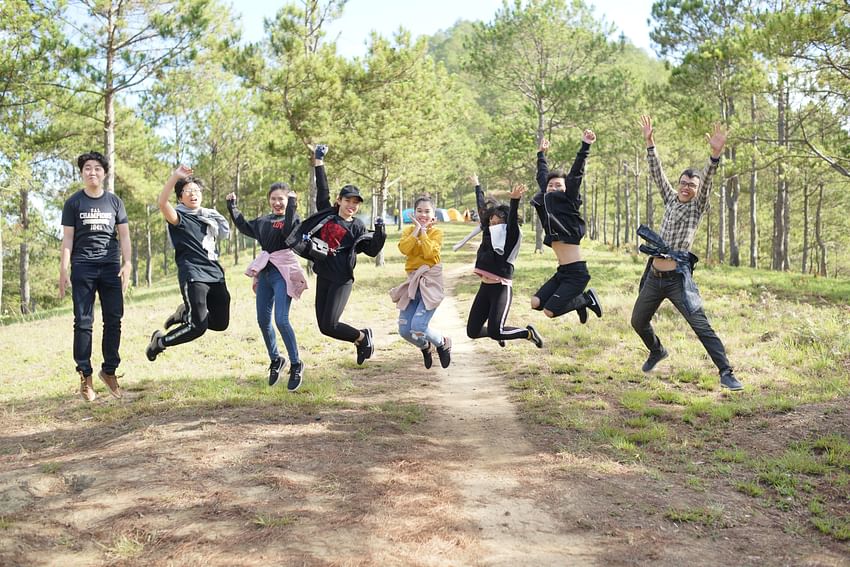Doesn't it sound great to have a world full of efficient adults and happy children? But how would it work?
I myself have always tried to please everyone else, tried to meet other people's expectations of me even as a small child, and then when I had children of my own, I thought that the children must be first in line for my attention, maybe I can develop my dreams and have more time when the children are older. But my thinking didn't work for very long, prioritizing yourself for someone else and constantly trying to please others is not very sustainable. I disappeared as Johanna and only parts of me remained. Imagine if I had learned as a child the reverse way of looking at things; that I am actually highly responsible for my own life and my visions and that I can go as far as I want as long as I put myself first and when I learn to take care of myself and live according to my visions and goals, I can also take care of others in a much better way. That's how I think now and I know that my children and husband are so grateful to have a strong, determined mother and wife respectively.
Today we try to apply 7 good habits for effective adults and happy children in our family and it works just fine. Perhaps the 7 good habits are something you should implement in your and your family's life too?

7 good habits for effective adults and happy children is based on the idea that there are seven fundamental and timeless principles on which all human activity and all human interactions ultimately rest. The first three habits are called character habits and give you the ability to lead yourself. Habits 4-6 are called personality habits and are about how to increase your effectiveness through interactions with other people, while habit number 7 is more general and is about taking care of yourself and is a prerequisite for following the other habits.
Mastering character habits is a prerequisite for realizing personality habits. Having achieved a basic security and maturity within oneself is thus a prerequisite for being able to move on to interpersonal contacts and to develop in these as well. The seventh habit highlights the fact that the only thing that is constant is that everything changes, and that we need to evolve continuously in order to keep up with the world around us.
The 7 good habits are taken from the book; 7 Habits of Highly Effective People, written in 1989 by the American author Stephen R Covey. The book has sold over 25 million copies worldwide and was translated into Swedish in 1999, when it was called The 7 Good Habits or Living and Working at 100%. A newer version with the name: The 7 good habits : the foundation for personal development and sustainable leadership came out in 2015. The book is still used today as a starting point for attractive leadership training courses and for personal development and effectiveness around the world.
The book is aimed at people in leadership positions, and that of course means the large group of parents. Stephen R Covey realized that being effective is a full-time job. There are no quick fixes or shortcuts. However, it doesn't have to mean that you're doomed to a lifetime of hard, boring work if you just make sure you acquire the habits that produce the results you want. With his book, he shows that with determination you can go far.
In 2008 the book The 7 Habits of Happy Kids was published, written by Sean Covey (son of Stephen R Covey). The book is aimed at children aged 4-8. Sean Covey has also previously published a book for teenagers, The 7 Habits of Highly Effective Teens. The difference between the three books is really only how the habits are presented to the different target groups.
The order in which the books came out is indicative of how important it is for adults to set a good example, first the book for the adult target group and now the latest book for the younger audience. Children follow their leaders and if their leaders have embraced the seven basic and timeless principles, there is a good chance that children will follow them too, consciously or unconsciously.
However, if you are an adult and have missed the concept completely, it is now possible to read the children's version, which is a little more accessible and easy to understand if you feel like it. The cozy aspect of the children's book is the different characters representing the 7 good habits and the environment that the author managed to create. After each habit is introduced, there is a "parent's corner", discussion points and small steps the child can take to understand what the habits mean in more practical terms. As an adult, I just want to read more and my children request the book often.
Of course, if you don't want to read any of the books, you can simply understand what the different habits mean by reading the summary of them in this short article and starting from there. Sorry, but the summary here is just in Swedish. Start working with yourself today and then help others around you.
A world full of strong, effective and purposeful people is a sustainable and happy world to be in. That's what we all need today!
Good luck!
